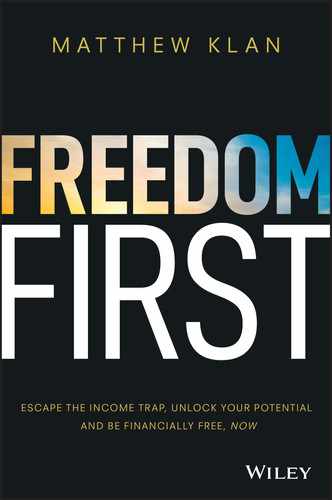PART II
The traps that come from not being free
David was a good friend from high school so I knew his background pretty well. Growing up when personal computers were a new thing, I remember spending hours at his place playing on the Commodore 64. As we got older, all that screen time saw David become a real whiz with computers—I remember when the second Terminator movie came out with ground-breaking-for-the-time special effects, he was inspired: ‘I really wish I could do that,’ and off he’d disappear for weeks at a time alone with his computer. Out of all of us, David probably valued security the most. From an early age he expressed a desire to be a dad, and he was the first to marry after high school. Years later, an opportunity came up to move to the Gold Coast and study 3D animation for movies and special effects, but by that point life had got busy and his dream had become a hobby. That wouldn’t have been so bad for David if he hadn’t gotten sick. His ordered, settled life was thrown into chaos when, out of nowhere, he was struck with debilitating joint pains that would flare up intermittently, with no warning. After countless tests and no answers, it was finally discovered that David had an extremely rare autoimmune disorder. So rare, in fact, that only an experimental—and very expensive—treatment had been developed for it. It was such a toxic drug that he had to use a separate bathroom in his house to avoid poisoning his family with the chemotherapy-like by-products. Fortunately, the government covered the costs of the $2000-per-shot treatment. But even so, he was still off sick from work pretty regularly. While his illness made him dependent on a drug, the prohibitively expensive nature of the drug made him dependent on the government. David’s string of dependencies saw him trapped in a job that was getting worse and worse every day. His boss was starting to give him a hard time for calling in sick so often and David was feeling terrible about it, but he was stuck. It’s great that we have a social safety net, but the cost of that support is that you have to come under a certain threshold of income. David had already cut back his family’s expenses to the bone just to qualify for the assistance in the first place—he couldn’t quit this job and do casual work around his illness: he had a family to feed. And because of the expensive nature of the drug, it wasn’t like he could just get a slightly better paying job and pay for it himself out of pocket—as soon as he went over the income threshold he’d have to get a job that paid substantially more before he could even hope to be back to where he started. Most people would be happy to see their salaries go up by 5 per cent a year; or maybe take a new job that pays 10 per cent more. But how many people realistically expect to be able to find a new job that pays more than twice as much as their last one? It’s too big a leap. But all of that was academic. The Dependence Trap was about to rob David of the security that he valued most. Because he couldn’t continue to pay David a full-time salary if he was constantly off sick, his boss gave him an ultimatum: go off the full-time salary onto commission-only, or he would have to let him go …
